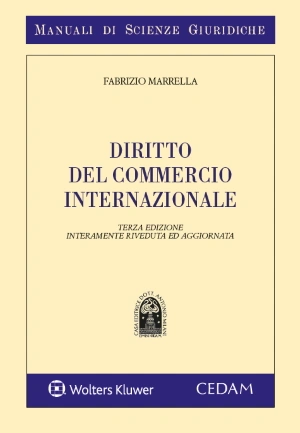Views
Japanese Supreme Court Renders Decision on Hague Abduction Convention
On December 21, 2017, the Japanese Supreme Court rendered a decision on the Hague Abduction Convention. The Court upheld a lower court decision in favor of the Japanese mother, even though she had turned back on her promise to return the kids from a visit to Japan, and even though that same court had earlier issued a return order in favor of the American father. The matter had received international press attention, and even a Congressional subcommittee hearing.
Japan had long refused to join the Hague Convention, and when it did, in 2014, critical observers already expected that courts would find ways to undermine it. Those observers see themselves vindicated.
Colin Jones reports critically on the decision; he has previously written on Japan’s joining the Convention and on reluctance to enforce it. Useful background from the Law Library of Congress is here.
Japanese accession to the Convention has been a frequent scholarly topic, both in Japan and elsewhere. Yuko Nishitani, who had already written about “International Child Abduction in Japan” in (2006) 8 Yearbook of Private International Law 125-143, and who wrote a long report (in Japanese) for the Japanese Ministry in 2010, provided a brief analysis in 2011. Dai Yokomizo discussed the accession in (2012) Revue critique 799; Jun Yokohama did so in the Mélanges van Loon (2013, pp 661-72). Vol. 57 (2014) of the Japanese Yearbook of International Law contains articles by Tatsuki Nishioka and Takako Tsujisaka, Masayuki Tanamura, Masako Murakami, Martina Erb-Klünemann, and Nigel Vaughan Lowe. Takeshi Hamano helpfully explains the Japanese reluctance with regard to the Japanese ideology of the family. Outside of Japanese authors, Barbara Stark and Paul Hanley wrote most recently in the United States; the topic is also addressed in several student notes. The accession was also discussed by Bengt Schwemann (in German) and Francisco Barberán Pelegrín (in Spanish).
UKSC on Traditional Rules of Jurisdiction: Brownlie v Four Seasons Holdings Incorporated
Shortly before Christmas the UKSC released its decision on jurisdiction in Brownlie v Four Seasons Holdings Incorporated (available here). Almost all the legal analysis is obiter dicta because, on the facts, it emerges that no claim against the British Columbia-based holding corporation could succeed (para 15) and the appeal is allowed on that basis. I suppose there is a back story as to why it took a trip to the UKSC and an extraordinary step by that court (para 14) for the defendant to make those facts clear, but I don’t know what it is. On the facts there are other potential defendants to the plaintiffs’ claim and time will tell whether jurisdictional issues arise for them.
The discussion of the value of the place of making a contract for jurisdiction purposes is noteworthy. In para 16 two of the judges (Sumption, Hughes) are critical of using the traditional common law rules on where a contract is made for purposes of taking jurisdiction. This has been the subject of debate in some recent Canadian decisions, notably the difference in approach between the Court of Appeal for Ontario and the Supreme Court of Canada in Lapointe Rosenstein Marchand Melançon LLP v Cassels Brock & Blackwell LLP, 2016 SCC 30 (available here). The SCC was fine with using the traditional rules for this purpose. In Brownlie, I do not think it is clear as to what view the other three judges take on this point.
Even more interestingly, the UKSC judges split 3-2 on how to understand the idea of damage in the forum as a basis for jurisdiction. Three judges (Hale, Wilson, Clarke) retain the traditional broad common law view – the position in many Canadian provinces prior to Club Resorts Ltd v Van Breda, 2012 SCC 17 (available here) – that ongoing suffering in the forum in respect of a tort that happened abroad is sufficient. Two judges (Sumption, Hughes) reject that approach and adopt a more narrow meaning of damage in the forum (it must be direct damage only).
This 3-2 split is closer even than it might first seem, since Lord Wilson (para 57) suggests that in a different case with fuller argument on the point the court might reach a different result.
Canadian law does not get a fair description in the UKSC decision. The court notes twice (para 21 and para 67) that Canada’s common law uses a broad meaning of damage for taking jurisdiction. Club Resorts, and the change to the law it represents on this very issue, is not mentioned. This is yet another illustration of the importance of being careful when engaging in comparative law analysis.
Conflicts – Between Domestic and Indigenous Legal Systems?
In Beaver v Hill, 2017 ONSC 7245 (available here) the applicant sought custody, spousal support and child support. All relevant facts happened in Ontario. Read more
News
Save the Date: EU Insolvency Law and Third Countries: Which Way(s) Forward?, 26–28 Oct 2023
On 26–28 October 2023, the University of Kiel will be hosting a conference on ‘EU Insolvency Law and Third Countries: Which Way(s) Forward?’. It is part of a research project coordinated by Professors Alexander Trunk (University of Kiel) and Jasnica Garasic (University of Zagreb), which is endorsed by UNCITRAL and supported by the Fritz Thyssen Foundation. It is conducted in cooperation with representatives of the European Commission and the Hague Conference on Private International Law.
At the conference, the first results from the project will be presented and discussed with a larger professional and academic public. The conference will also include a Young Researchers Forum on the morning of 26 October.
The organizers have kindly shared the following documents with us:
Further information can also be found at the project website.
Out Now: Fabrizio Marrella, “Diritto del commercio internazionale / International Business Law”, 3rd edition 2023
The third edition of Fabrizio Marrella’s textbook on international business law has recently published by Wolters Kluwers/Cedam.

The author (Vice-Rector and Chair of International Law at “Cà Foscari” University of Venice, Italy) has kindly provided the following summary for our readers:
After an historical introduction and a clear systematic analysis of key actors and sources of International Business Law, the book focuses on transnational contracts and commercial relationships of companies by deepening international sales (including the first applications of Incoterms ® 2020), contracts of international transport, insurance, commercial distribution, payments and bank guarantees. The leading methodology used by the Author is that of private international law and best operational practices.
The book also sets out the regulation of foreign direct investment in the light of the latest new regulatory and case-law developments. In the final part, the work examines, in one section, ADR mechanisms together with international arbitration and, in the final section, the most relevant international civil procedure rules for businesses.
The book can be found at the publisher’s website here.
Dutch Journal of PIL (NIPR) – issue 2023/2

The latest issue of the Dutch Journal on Private International Law (NIPR) has been published.
NIPR 2023 issue 2
Editorial
C.G. van der Plas / p. 197
Articles
K.C. Henckel, Issues of conflicting laws – a closer look at the EU’s approach to artificial intelligence / p. 199-226
Abstract
While newly emerging technologies, such as Artificial intelligence (AI), have a huge potential for improving our daily lives, they also possess the ability to cause harm. As part of its AI approach, the European Union has proposed several legislative acts aiming to accommodate and ensure the trustworthiness of AI. This article discusses the potential private international law impact of these legislative proposals. In doing so, it – inter alia – addresses how the newly proposed legislative acts interact with existing private international law instruments, such as the Rome II Regulation. In addition, it questions whether there is a need for specific rules on the private international law of AI.


